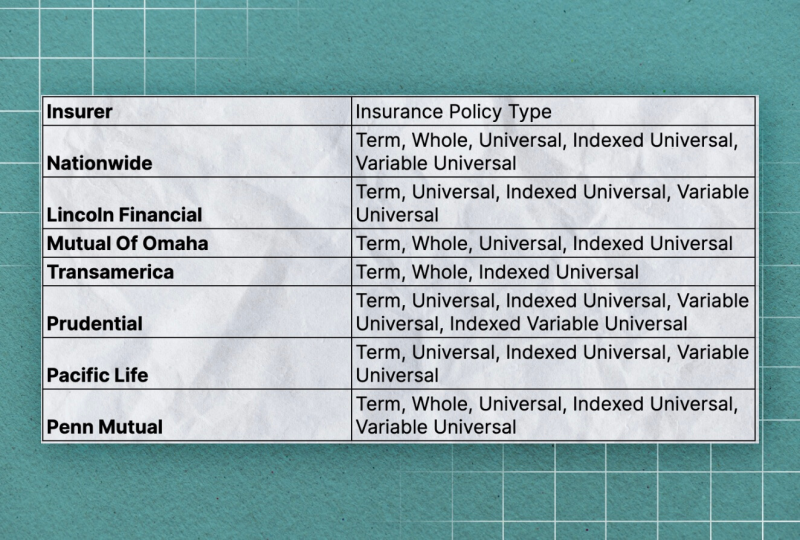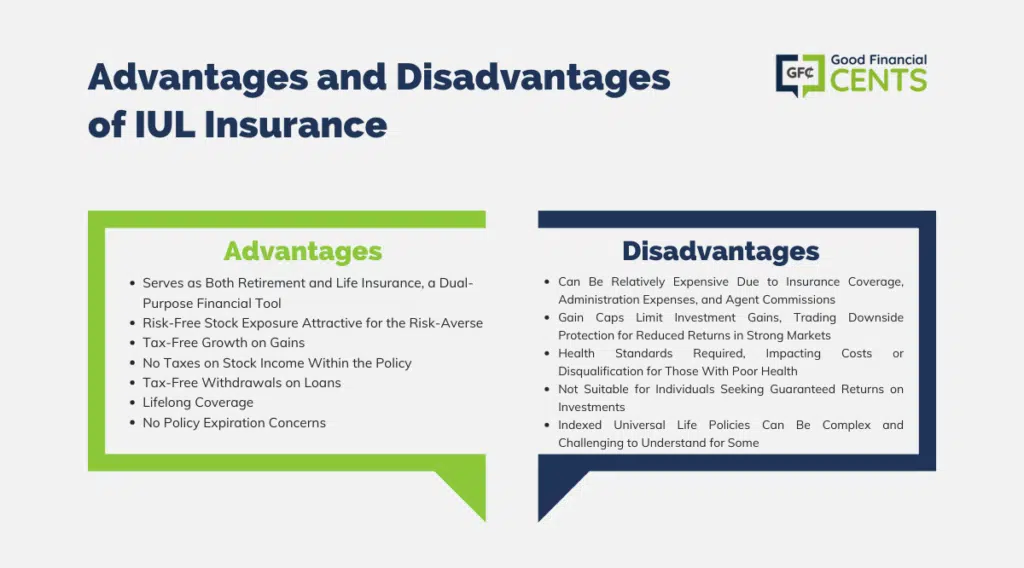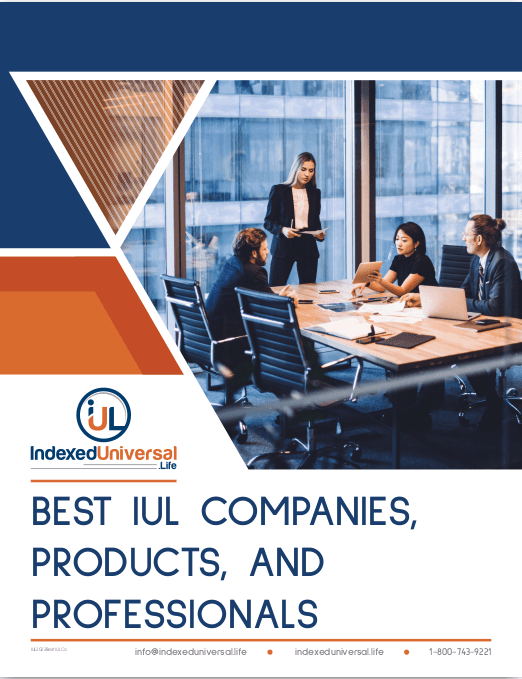All Categories
Featured
Table of Contents
Do they contrast the IUL to something like the Vanguard Overall Stock Market Fund Admiral Shares with no lots, a cost ratio (EMERGENCY ROOM) of 5 basis factors, a turn over ratio of 4.3%, and an extraordinary tax-efficient document of circulations? No, they contrast it to some dreadful proactively handled fund with an 8% tons, a 2% EMERGENCY ROOM, an 80% turn over proportion, and a terrible document of temporary resources gain distributions.
Shared funds commonly make annual taxable circulations to fund proprietors, even when the value of their fund has dropped in worth. Mutual funds not just need earnings reporting (and the resulting yearly taxes) when the common fund is rising in value, however can additionally impose income tax obligations in a year when the fund has actually decreased in value.
That's not how mutual funds function. You can tax-manage the fund, harvesting losses and gains in order to decrease taxable distributions to the capitalists, yet that isn't somehow going to change the reported return of the fund. Only Bernie Madoff kinds can do that. IULs stay clear of myriad tax catches. The possession of mutual funds might call for the common fund proprietor to pay projected tax obligations.

IULs are easy to place to make sure that, at the proprietor's death, the beneficiary is exempt to either income or estate tax obligations. The very same tax reduction strategies do not function nearly also with mutual funds. There are various, typically expensive, tax obligation catches connected with the timed trading of shared fund shares, traps that do not relate to indexed life insurance policy.
Possibilities aren't very high that you're mosting likely to undergo the AMT because of your mutual fund distributions if you aren't without them. The remainder of this one is half-truths at finest. While it is real that there is no earnings tax obligation due to your successors when they inherit the earnings of your IUL plan, it is also true that there is no revenue tax obligation due to your successors when they acquire a shared fund in a taxable account from you.
Single Premium Indexed Universal Life Insurance
The government estate tax exception limit is over $10 Million for a couple, and expanding yearly with rising cost of living. It's a non-issue for the substantial bulk of doctors, much less the remainder of America. There are much better methods to stay clear of inheritance tax concerns than purchasing financial investments with reduced returns. Common funds may create revenue taxation of Social Security benefits.

The growth within the IUL is tax-deferred and might be taken as tax totally free income via loans. The plan owner (vs. the shared fund manager) is in control of his or her reportable earnings, hence allowing them to reduce or perhaps remove the tax of their Social Safety and security advantages. This set is great.
Here's an additional very little issue. It's true if you buy a common fund for state $10 per share right before the circulation day, and it disperses a $0.50 circulation, you are after that going to owe tax obligations (probably 7-10 cents per share) despite the fact that you have not yet had any type of gains.
Yet in the end, it's really regarding the after-tax return, not just how much you pay in tax obligations. You are going to pay more in tax obligations by using a taxable account than if you purchase life insurance policy. You're additionally probably going to have even more money after paying those taxes. The record-keeping requirements for possessing mutual funds are considerably more complex.
With an IUL, one's records are kept by the insurance policy business, duplicates of yearly declarations are mailed to the proprietor, and distributions (if any) are amounted to and reported at year end. This one is likewise kind of silly. Certainly you ought to keep your tax obligation documents in case of an audit.
Universal Term Life
All you need to do is push the paper into your tax folder when it shows up in the mail. Barely a factor to get life insurance policy. It's like this individual has never invested in a taxed account or something. Common funds are commonly component of a decedent's probated estate.
On top of that, they undergo the delays and costs of probate. The profits of the IUL plan, on the various other hand, is constantly a non-probate circulation that passes outside of probate straight to one's named beneficiaries, and is as a result exempt to one's posthumous creditors, undesirable public disclosure, or comparable delays and costs.
We covered this under # 7, yet simply to wrap up, if you have a taxed common fund account, you must place it in a revocable trust (or even less complicated, make use of the Transfer on Fatality designation) to avoid probate. Medicaid incompetency and lifetime revenue. An IUL can supply their proprietors with a stream of income for their whole lifetime, no matter of how lengthy they live.

This is helpful when organizing one's events, and transforming assets to earnings before a nursing home confinement. Shared funds can not be transformed in a comparable manner, and are usually taken into consideration countable Medicaid assets. This is one more dumb one promoting that inadequate people (you recognize, the ones that require Medicaid, a government program for the bad, to pay for their nursing home) should utilize IUL instead of mutual funds.
Maximum Funded Tax Advantaged Life Insurance
And life insurance policy looks awful when compared rather against a pension. Second, people that have money to buy IUL above and beyond their pension are going to need to be dreadful at managing money in order to ever before get Medicaid to spend for their nursing home prices.
Persistent and terminal ailment rider. All plans will certainly enable an owner's easy access to cash from their policy, usually waiving any surrender fines when such people endure a severe disease, need at-home care, or come to be restricted to a nursing home. Common funds do not provide a comparable waiver when contingent deferred sales costs still relate to a common fund account whose proprietor needs to sell some shares to fund the prices of such a keep.
Growth Life Insurance
You get to pay even more for that benefit (rider) with an insurance plan. What a good deal! Indexed global life insurance policy provides fatality advantages to the recipients of the IUL proprietors, and neither the owner neither the recipient can ever lose cash due to a down market. Mutual funds supply no such warranties or survivor benefit of any type of kind.
I absolutely don't require one after I get to economic self-reliance. Do I desire one? On standard, a purchaser of life insurance pays for the true expense of the life insurance policy advantage, plus the costs of the plan, plus the profits of the insurance coverage firm.
Selling Universal Life Insurance
I'm not completely sure why Mr. Morais threw in the entire "you can't shed money" once more below as it was covered quite well in # 1. He just wished to duplicate the best marketing point for these things I suppose. Once more, you do not shed nominal bucks, but you can lose real dollars, along with face significant possibility expense due to reduced returns.

An indexed universal life insurance policy policy owner might trade their plan for a completely different plan without activating revenue taxes. A shared fund owner can stagnate funds from one common fund firm to another without marketing his shares at the previous (thus setting off a taxed event), and repurchasing new shares at the last, usually based on sales charges at both.
While it is real that you can trade one insurance coverage for one more, the factor that individuals do this is that the initial one is such an awful policy that also after buying a brand-new one and experiencing the very early, unfavorable return years, you'll still appear in advance. If they were offered the ideal policy the very first time, they shouldn't have any wish to ever trade it and experience the early, negative return years once again.
Latest Posts
The Cash Value In An Indexed Life Insurance Policy
Guaranteed Universal Life Insurance Cost
Veterans Universal Life Insurance